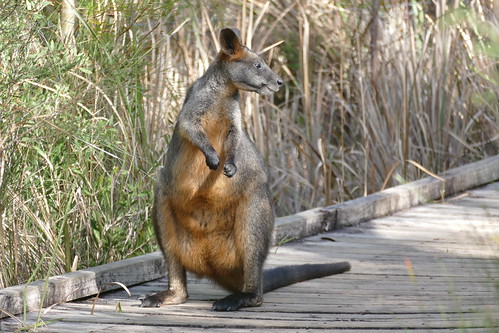Wallabies must kick up a gear to withstand Fiji in sudden-death mode
Wallabies #Wallabies

In 1952, when Fiji first played Test rugby against Australia, huge crowds flocked to the spectacle. Having worn boots only since 1938, the Fijians played the all-out attack that became their trademark and, in their first Test against the Wallabies, scored rugby’s fastest try – a 16-second effort at the SCG. The tour drew record crowds – three-times the Bledisloe Cup series – and established a flamboyant rivalry.
Now, a new chapter. Australia’s Rugby World Cup pool match against Fiji is the biggest challenge yet in the Eddie Jones era. The 63-year-old coach used the five Rugby Championship Tests as a “pre-season” selection shootout for this World Cup and the Wallabies lost every one. But Jones had his eye on a bigger goal – finding and blooding young players to shake up this 2023 tournament, then win the 2027 World Cup in Australia.
Fans will find out if there is method to Jones’s madness in Saint-Étienne on Sunday (Monday AEST). Having lost a game they should have won against Wales in Bordeaux, Fiji are in sudden-death mode. It makes a danger game potentially lethal. If Australia lose to Fiji, and again to Wales next week, they risk the disaster of being knocked out in the pool stages for the first time in their World Cup history.
Australia got a whiff of wind in their sails with the 35-15 win over Georgia in round one. However, the Flying Fijians, playing the best rugby of their 99-year history and well coached by former Wallabies assistant Simon Raiwalui, are in superior form. Before their Wales comeback was cruelled by Semi Radradra’s late knock-on, Fiji had won four of their last five, including a 30-22 win over England.
The task now for Fiji is simple: win and win well to have a chance at the quarter-finals. For Australia, it’s more complex. Yes, they banked a bonus-point win against Georgia, but their second half was shoddy. If not for a key fumble in space by centre Merab Sharikadze, a try-saving tackle from Mark Nawaqanitawase on Aka Tabutsadze and an accidental intercept by Taniela Tupou, they might have lost.
Mark Nawaqanitawase has been setting the world alight with his aerial skills. Photograph: Matthieu Mirville/DPPI/Shutterstock
Australia’s hopes, and Rugby Australia’s wider revolution, hang on them kicking up a gear in round two. But they have issues. The bright spot against Georgia was the dominance of Australia’s scrum, but strike weapon Tupou has been ruled out with a hamstring injury and will be replaced by veteran James Slipper. With Pone Fa’amausili still recovering from injury, the Wallabies could be exposed up front.
skip past newsletter promotion
The latest rugby union news and analysis, plus all the week’s action reviewed
Privacy Notice: Newsletters may contain info about charities, online ads, and content funded by outside parties. For more information see our Privacy Policy. We use Google reCaptcha to protect our website and the Google Privacy Policy and Terms of Service apply.
after newsletter promotion
Likewise behind the pack. First-pick scrumhalf Tate McDermott is sidelined with concussion, with Nic White, who looked slow and out of sorts against Georgia and is carrying a shoulder injury, to step into his spot. It means in-form Western Force half Issak Fines-Leleiwasa will probably get major minutes against Fiji and a chance to spark with flyhalf Carter Gordon who has the keys to the gold Kingswood at No 10 but is yet to hit full throttle.
For every piece of the Wallabies puzzle that slips between the sofa cushions, another slots into place. Australia’s troubles off the tee are solved, with Ben Donaldson’s assured 25-point showing locking him in at No 15. It gives Australia’s spluttering attack a crucial alternative kick-chase option to feed their own Fijian-heritage flyers Nawaqanitawase, Marika Koroibete and Suliasi Vunivalu on the wings.
If there is a theme to the tournament so far it’s that this World Cup will be won and lost in the air. France kicked 76% of possession away to beat New Zealand and England 96% to defeat Argentina. Australia spruik a ball-in-hand modus operandi but Nawaqanitawase is setting the world alight with his aerial skills. Will they risk unleashing Fiji’s outside backs in counterattack to bomb his way?
In any case, it’s the Wallabies defence that will decide this match, hence it being prioritised by Jones and his ex-NRL assistants Brett Hodgson and Jason Ryles all week. In the five Tests before the World Cup, Australia had leaked twice as many points as they scored. Against Georgia, Australia started fast with early tries but thereafter their resolve and ruthlessness crumbled, and with it, their defence.
The hard-running, hard-hitting Fiji side is filled with try scorers – it is why, until last week, they ranked seventh in the world and Australia ninth (those rankings reversed after first round results in France). With boosted funding from World Rugby and the Drua’s exposure to professionalism in Super Rugby, Fiji are already big picture winners. Their rugby revolution is flying and Australia’s is yet to take flight.
So ignore the history that says Fiji haven’t beaten Australia since 1954 and never at a World Cup, where Fiji has made quarter-finals twice (1987 and 2007) in eight attempts. Look closer and you see that in their last World Cup meeting in Sapporo in 2019, Fiji led for a full hour before Australia scraped out a win. And note the respective lineups too, where seven of the men wearing gold jerseys boast Fijian blood.
History and heritage won’t matter on Monday. The Wallabies are in for the fight of their lives.